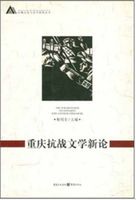Now, fellow-citizens, in regard to this matter about a contract that was made between Judge Trumbull and myself, and all that long portion of Judge Douglas's speech on this subject,--I wish simply to say what I have said to him before, that he cannot know whether it is true or not, and I do know that there is not a word of truth in it. And I have told him so before. I don't want any harsh language indulged in, but I do not know how to deal with this persistent insisting on a story that I know to be utterly without truth. It used to be a fashion amongst men that when a charge was made, some sort of proof was brought forward to establish it, and if no proof was found to exist, the charge was dropped. I don't know how to meet this kind of an argument. I don't want to have a fight with Judge Douglas, and I have no way of making an argument up into the consistency of a corn-cob and stopping his mouth with it. All I can do is--good-humoredly--to say that, from the beginning to the end of all that story about a bargain between Judge Trumbull and myself, there is not a word of truth in it. I can only ask him to show some sort of evidence of the truth of his story. He brings forward here and reads from what he contends is a speech by James H. Matheny, charging such a bargain between Trumbull and myself. My own opinion is that Matheny did do some such immoral thing as to tell a story that he knew nothing about. I believe he did. I contradicted it instantly, and it has been contradicted by Judge Trumbull, while nobody has produced any proof, because there is none. Now, whether the speech which the Judge brings forward here is really the one Matheny made, I do not know, and I hope the Judge will pardon me for doubting the genuineness of this document, since his production of those Springfield resolutions at Ottawa. I do not wish to dwell at any great length upon this matter. I can say nothing when a long story like this is told, except it is not true, and demand that he who insists upon it shall produce some proof. That is all any man can do, and I leave it in that way, for I know of no other way of dealing with it.
[In an argument on the lines of: "Yes, you did. --No, I did not." It bears on the former to prove his point, not on the negative to "prove" that he did not--even if he easily can do so.]
The Judge has gone over a long account of the old Whig and Democratic parties, and it connects itself with this charge against Trumbull and myself. He says that they agreed upon a compromise in regard to the slavery question in 1850; that in a National Democratic Convention resolutions were passed to abide by that compromise as a finality upon the slavery question. He also says that the Whig party in National Convention agreed to abide by and regard as a finality the Compromise of 1850. I understand the Judge to be altogether right about that; I understand that part of the history of the country as stated by him to be correct I recollect that I, as a member of that party, acquiesced in that compromise. I recollect in the Presidential election which followed, when we had General Scott up for the presidency, Judge Douglas was around berating us Whigs as Abolitionists, precisely as he does to-day,--not a bit of difference. I have often heard him. We could do nothing when the old Whig party was alive that was not Abolitionism, but it has got an extremely good name since it has passed away.
[It almost a natural law that, when dead--no matter how bad we were--we are automatically beatified.]
When that Compromise was made it did not repeal the old Missouri Compromise. It left a region of United States territory half as large as the present territory of the United States, north of the line of 36 degrees 30 minutes, in which slavery was prohibited by Act of Congress. This Compromise did not repeal that one. It did not affect or propose to repeal it. But at last it became Judge Douglas's duty, as he thought (and I find no fault with him), as Chairman of the Committee on Territories, to bring in a bill for the organization of a territorial government,--first of one, then of two Territories north of that line. When he did so, it ended in his inserting a provision substantially repealing the Missouri Compromise. That was because the Compromise of 1850 had not repealed it. And now I ask why he could not have let that Compromise alone? We were quiet from the agitation of the slavery question. We were making no fuss about it. All had acquiesced in the Compromise measures of 1850. We never had been seriously disturbed by any Abolition agitation before that period. When he came to form governments for the Territories north of the line of 36 degrees 30 minutes, why could he not have let that matter stand as it was standing? Was it necessary to the organization of a Territory? Not at all. Iowa lay north of the line, and had been organized as a Territory and come into the Union as a State without disturbing that Compromise. There was no sort of necessity for destroying it to organize these Territories. But, gentlemen, it would take up all my time to meet all the little quibbling arguments of Judge Douglas to show that the Missouri Compromise was repealed by the Compromise of 1850. My own opinion is, that a careful investigation of all the arguments to sustain the position that that Compromise was virtually repealed by the Compromise of 1850 would show that they are the merest fallacies. I have the report that Judge Douglas first brought into Congress at the time of the introduction of the Nebraska Bill, which in its original form did not repeal the Missouri Compromise, and he there expressly stated that he had forborne to do so because it had not been done by the Compromise of 1850. I close this part of the discussion on my part by asking him the question again, "Why, when we had peace under the Missouri Compromise, could you not have let it alone?"















